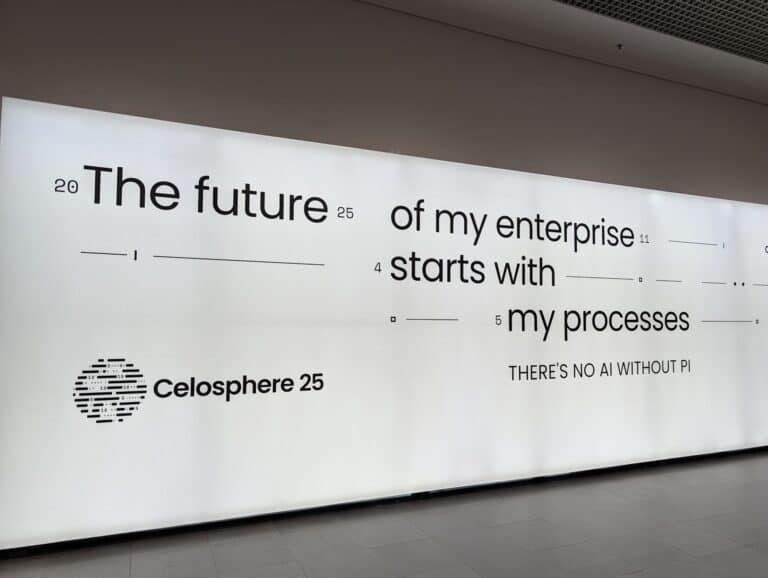At Celosphere 2025, it becomes clear that efforts on Process Intelligence (PI) are beginning to pay off in practice. Mercedes-Benz, Vinmar, and Uniper are now demonstrating how the combination of AI and process context is delivering tangible results in production and logistics.
Mercedes-Benz, for example, uses Celonis to optimize production in more than 30 factories worldwide. The car manufacturer has to deal with a complex network of millions of parts, suppliers, and processes. The Celonis platform connects data from all key production and logistics systems to its own MO360 platform.
The implementation is delivering concrete results. AI co-pilots predict delivery times and optimize planning. In after-sales, Process Intelligence identifies bottlenecks in parts logistics. For quality management, AI detects deviations before they affect production quality.
“Full data transparency across our production network and the supply chain allows us to empower our teams to act with greater speed and precision,” says Dr. Jörg Burzer, Member of the Board of Management of Mercedes-Benz Group AG. The platform now has hundreds of active users and is growing throughout the organization.
Vinmar fully automates Order-to-Cash
Plastics and chemicals distributor Vinmar transformed its Order-to-Cash process from a $3 billion (€2.6 billion) business unit into a fully automated operation. Celonis helped the company build intelligent workflows that process orders without human intervention.
The approach shows that Process Intelligence not only provides insight but also enables direct action. Processes now run faster and make fewer errors.
Companies struggle with ROI on AI
Many organizations are not seeing a return on their AI investments, Celonis observes. This is because they view Enterprise AI as technology rather than a strategic discipline, says Celonis co-CEO Alex Rinke. The problem lies in the context. AI needs to know how business processes work, where it should be deployed, and how it integrates with existing systems. “There is no AI without PI,” the company observes.
Celonis wants to bridge the gap with Process Intelligence. The platform creates a digital twin of business operations via the Process Intelligence Graph. This Graph collects data from systems, departments, and external parties. On top of that, Celonis offers tools to analyze, design, and run processes autonomously.
Microsoft and Celonis integrate deeply
Energy company Uniper scaled its AI use by collaborating with Celonis and Microsoft. The combination enables end-to-end process orchestration. “Combining Microsoft’s AI ecosystem with Celonis process intelligence lets us deploy AI effectively, automate workflows intelligently, and track performance continuously,” said Uniper CIO Hans Pezold.
Microsoft sees the collaboration as crucial to the future of business operations. “Celonis and Microsoft are redefining what’s possible for enterprise operations,” said Charles Lamanna, President of Business and Industry Copilot at Microsoft. The combination of process intelligence with Microsoft AI and Copilot should help organizations go beyond automation alone.
Open platform as a success factor
Celonis emphasizes that its open platform and ecosystem enable success. Service and technology partners build AI-driven, composable solutions on top of the platform. This approach helps customers create value faster.
The showcases at Celosphere 2025 make it clear that Enterprise AI only works when linked to process context. According to Celonis, companies that combine Process Intelligence with AI tools see measurable improvements in efficiency, quality, and decision-making.
Tip: Celonis liberates business processes with real-time MRI scans
